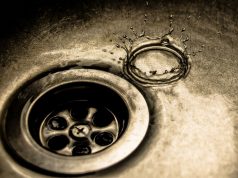
It is necessary you are a landlord, an employer or an apartment owner to have a qualified and certified electrical contractor inspect and test electrical appliances as well as circuits and give you a safety report or an electrical safety certificate. Failure to do so may endanger you as well as others.
Note: Unprofessionally tested electrical appliances can lead to a dangerous fire or a terrible electrical shock, endangering people’s lives as well as damaging property. Only in England, it was revealed that 54.4% of fires were triggered by electricity in 2015/16.
Like anything, electrical appliances degrade gradually and so need to be inspected regularly. Luckily, we’ve put together everything needed to know by you regarding electrical testing, inspections as well as certificates, and why they’re essential. Continue reading to know better.
Meaning of an electrical safety report and/or an electrical safety certificate
There is a clear distinction between the two terms. An electrical safety certificate is issued for a new electrical installation (like a new circuit, a rewire or a new consumer unit). In contrast, a safety report is generated when a test is performed by an electrical contractor on an existing electrical installation.
A periodic electrical report is a report on electrical inspection which describes the electrical safety condition of commercial or residential property as well as verifies the electrical installation safety.
Note: The inspection usually takes between two and four hours, in the event that an electrical inspection is done on a commercial or domestic property with wiring that is fairly new (not longer than last thirty years). For properties that are older, it can take longer to check in the event that the property has old wiring & faults are found. Report on electrical inspection will:
- Identify any faulty electrical work.
- Identify any possible fire hazards as well as electrical shock risks.
- Describe the kind, age, as well as the wiring status within the property.
- Reveal any general wear & tear.
- Identify overloaded electrical equipment or circuits.
- Identify any lack of earthing or bonding.
Every electrical inspection certificate or report must be done by fully certified and professional electricians or engineers. The status of the electrical system of yours shall be examined to see if it meets the standard of UK for safe installations. Electrical inspections are crucial for landlords; the regulation states that at the start of a tenancy, landlords are required to have an electrical inspection report completed. Likewise, new buyers of home are also required to have an electrical inspection report completed.
The electrical certificates must be signed by only a ay; with no proper electrical certificate, you may not covered by the insurance of yours if something happens (e.g. electrical shock).
To make sure that a reputable professional is doing the electrical inspection of yours, follow these steps:
- Verify that the electrical contractor is a Bonafede member of a body, like NICEIC, ELECSA or NAPIT.
- Verify that the electrical contractor is insured with the registered body.
- Ensure that the electrical contractor is registered under the appropriate scheme.
Note: It is only approved electrical contractors that are eligible to offer electrical certificates and not just any electrician.
Importance of having periodic testing
Although there isn’t particular law that requires any homeowner having their electrical installation tested periodically, failure to have it tested could lead to a severe and hazardous incident that could otherwise have been prevented by testing the wiring and repairing it professionally. Periodic electrical inspections are usually required in the process of selling or buying a home.
The electrical test is strongly recommended to be conducted regularly. Installations in both domestic & commercial property are liable to wear & tear; ageing and degradation, so it is crucial to maintain electrical safety & ensure safe installations on a regular basis. According to the Wiring Regulations of the British Standard (BS 76719):
- Homeowners should have a test (electrical) once in 10 years. In the event that the homes of yours contain swimming pool(s), it needs to be tested once in 1 year.
- Employers, as well as businesses, should undergo periodic test once every 5 years.
- Landlords should have the properties of theirs tested once in 5 years or at the start of a new tenancy.
As stated above, not undergoing periodic tests may endanger you, the property of yours and others. Over time, the property of yours can experience a variety of faults (electrical) such as overheating or overloading of electrical circuits when you are using it.
What happens in the event that an EICR returns negative?
Upon completion of the periodic test on the property of yours, you’ll receive an EICR or a certificate from the engineer that carried out the test. EICR identifies and presents any damage, defect or deterioration in the electrical system and other hazardous aspects that may pose a risk.
However, it is likely that the periodic test returns negative as well as the EICR reported as unsatisfactory. In this case, immediate work is required to make sure that your property (commercial or domestic) is restored to safety and that all risks are eliminated. The comprehensive report will describe precisely the electrical systems that failed the electrical test, plus the required work, which is grouped using the following specific codes:
- C1: This code implies ‘Danger present. There is a risk of injury. Remedial action is needed immediately.’
- C2: This code implies ‘Potentially dangerous – remedial action is needed urgent.
- C3: This code implies’ Improvement recommended’; something which is not in accordance with the latest regulations has been revealed, but it doesn’t present immediate danger. The only code that passes the electrical test, even when shown on EICR is C3.
Upon completion of the urgent remedial work & the electrical system of yours has passed the inspection fully, you will receive the EICR Safety Certificate.
Dangerous fires, as well as numerous electrical shocks, resulting in death and injury, occur in commercial & domestic properties every year due to faulty wiring & substandard equipment. Testing the electrical systems of yours reduces hazardous risks, so safety testing of electrical appliances is essential for your safety as well as others.
UK professional electricians provide electrical testing as well as inspection services to ensure that all wiring, as well as electrical appliances, are properly working in accordance with the latest British Standard Wiring Regulations (BS7671) and (SI 1989/635) Electricity at Work Regulations 1989.













